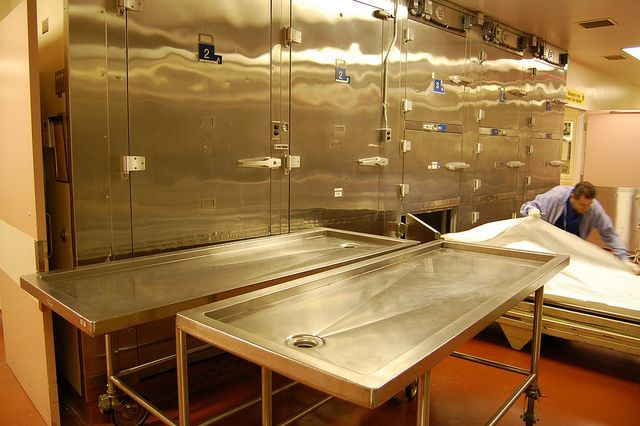Obesity Stigma Goes Beyond the Grave

With the hopes of one day becoming a scientific experiment, Queens's mechanical engineer George Cardel dying wish was to have his body donated to science. That dream was quickly shattered when Hofstra North Shore-LIJ School of Medicine at Hofstra University rejected the corpse.
He was pronounced dead last year at the Long Island Jewish Medical Center. The 59-year-old man weighed approximately 300 pounds at the time of death.
After rejecting the corpse, Hofstra North Shore-LIJ School of Medicine at Hofstra University then returned it to the family 13 days later. The body was so greatly decomposed that it required cremation.
In an interview with the Daily News Maryann O’Donnell, Cardel’s sister,said, "We thought everything was taken care of until 13 days later,” Joseph O'Donnell, husband of Maryann, said that the return of Cardel’s remains outraged the family. “Everybody was trying to get through closure and suddenly George was back."
Cardel was an engineer for aerospace contractors on monumental projects like the Hubble Space Telescope and an exterior arm of a space shuttle. He was known for his passion for science.
Though there's an insufficient amount of cadavers for medical students' anatomy classes, Michael Baden, who was previously a New York City chief medical examiner revealed it is not all that appalling that a medical school would turn down an obese corpse.
Hofstra North Shore-LIJ School of Medicine at Hofstra University spokesman Terry Lynam did not deny the family's story, but he did stated officials contacted other medical schools and labs in an effort to satisfy Cardel's wishes, but other facilities rejected the corpse as well.
To the family of Cardel, they believe this is a form of discrimination.
Lawyer Eric Rothstein, who is representing Cardel’s sister in a lawsuit stated that the hospital caused "grave humiliation" and the family is now suing, seeking up to $2 million.



























